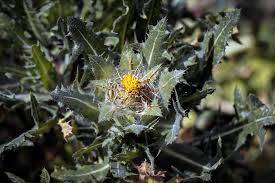
Breaking News
 Why America's Two-Party System Will Never Threaten the True Political Elites
Why America's Two-Party System Will Never Threaten the True Political Elites
 What's the deal with space-based data centers for AI?
What's the deal with space-based data centers for AI?
 Kiev Left With Few Hours Of Power Per Day In Subzero Temps
Kiev Left With Few Hours Of Power Per Day In Subzero Temps
 If You're Free To Complain About Fascism, You Don't Live In A Fascist Country
If You're Free To Complain About Fascism, You Don't Live In A Fascist Country
Top Tech News
 How underwater 3D printing could soon transform maritime construction
How underwater 3D printing could soon transform maritime construction
 Smart soldering iron packs a camera to show you what you're doing
Smart soldering iron packs a camera to show you what you're doing
 Look, no hands: Flying umbrella follows user through the rain
Look, no hands: Flying umbrella follows user through the rain
 Critical Linux Warning: 800,000 Devices Are EXPOSED
Critical Linux Warning: 800,000 Devices Are EXPOSED
 'Brave New World': IVF Company's Eugenics Tool Lets Couples Pick 'Best' Baby, Di
'Brave New World': IVF Company's Eugenics Tool Lets Couples Pick 'Best' Baby, Di
 The smartphone just fired a warning shot at the camera industry.
The smartphone just fired a warning shot at the camera industry.
 A revolutionary breakthrough in dental science is changing how we fight tooth decay
A revolutionary breakthrough in dental science is changing how we fight tooth decay
 Docan Energy "Panda": 32kWh for $2,530!
Docan Energy "Panda": 32kWh for $2,530!
 Rugged phone with multi-day battery life doubles as a 1080p projector
Rugged phone with multi-day battery life doubles as a 1080p projector
 4 Sisters Invent Electric Tractor with Mom and Dad and it's Selling in 5 Countries
4 Sisters Invent Electric Tractor with Mom and Dad and it's Selling in 5 Countries
Thistle extract accelerates nerve regeneration by up to 29%

According to a new study, a compound found in the blessed thistle plant accelerates the regeneration of damaged nerves, restoring motor function and touch sensation.
Damaged nerve fibers (axons) in the peripheral nervous system can regenerate themselves, but complete functional recovery often doesn't occur. That's because the Schwann cells responsible for regeneration stop providing support after about three months. If the restoration of nerve function, called reinnervation, hasn't happened in that time, the axonal injury often results in lifelong incomplete recovery and can lead to nerve or neuropathic pain.
Researchers from the University of Cologne in Germany used cnicin from the blessed thistle plant on cultured cells, including human cells, and live animals to see whether it sped up nerve regeneration and reduced pain.



